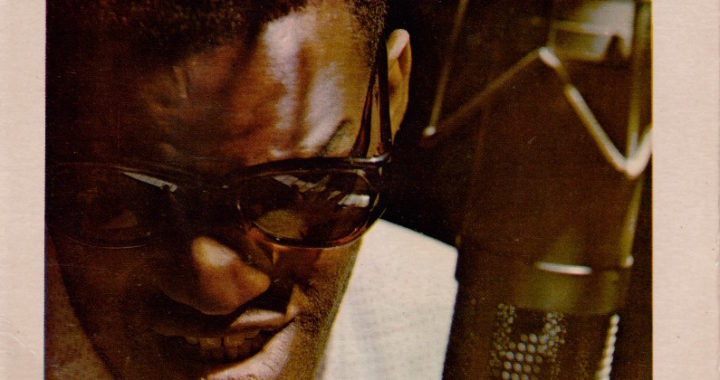There’s an opinion amongst some songwriters that songs that don’t form themselves quickly, usually within minutes, are duds; that the more you have to work to get a song to sound right, the less likely it is that you’ve got a song worth keeping.
It’s a surprisingly common view. Even Jay-Z, in his introductory paragraph to Rolling Stones’ Top 500 Songs list says it:
When I’m writing a song that I know is going to work, it’s a feeling of euphoria. It’s how a basketball player must feel when he starts hitting every shot, when you’re in that zone. As soon as you start, you get that magic feeling, an extra feeling. Songs like that come out in five minutes; if I work on them more than, say, 20 minutes, they’re probably not going to work.
Where does that view come from? I believe it stems from the very nature of music in the pop genres. One of the most important qualities of good pop music is the feeling of improvisation. Sure, the melody and lyrics may all be worked out and calculated. But when a song is good, everyone is contributing ideas that just pop out of their collective minds.
Even more can be improvised than the backing instrumentation. Ray Charles’ concocted “What’d I Say”, Number 10 on the Rolling Stones List, as an add-on to a set he was playing at a concert in 1958. Audiences loved it, everyone could tell it was destined to be a hit, and it earned Ray Charles his first Number 1 Billboard hit. But it came from an on-the-spot improvisation.
So what can we say about songs that take a long time to write? Is it worth working on anything longer than 20 minutes? Or, as Jay-Z implies, are you just following up something to its natural dead-end conclusion?
In Jay-Z’s defence, it’s fair enough for any songwriter to make the comment that for them, if a song takes longer than 20 minutes, they don’t feel that it’s going to ultimately work. That’s a personal view on their part, and for them, it may actually be true.
But I know plenty of songwriters for whom writing a song is a long venture of many days, weeks, months, or even years. And those are not months of frustration and aggravation. Like a sculptor constantly moulding, shaping, honing a lump of clay until it looks right, they take their time, and they enjoy the process.
There’s no reason to feel that songs that aren’t done in 20 minutes are destined for the garbage heap. Sure, it’s frustrating if you’re expecting something quickly.
But there is something amazing that can happen when you rethink what songwriting is. If you think of it as something where an original idea happens in the first 20 minutes, but the shaping and honing of that idea might take a few days or weeks or longer, you might see the results of your craft suddenly jump in quality.
Time can be your enemy, but usually only if you were expecting excellence to happen within moments. Time can be your friend if you release yourself from the pressure of writing quickly.
Become a slow writer, and enjoy the process!











Hi Gary:
Yes, much of my best work has happened quickly, almost like glimpsing something over one’s shoulder as an entity. All that remains is to write it down. The germ comes quickly, and that gives us material to develop. At least some of this is due to my long years in jazz. Anyway, it worked pretty well for a guy named Mozart.
But the ‘devil is in the details’, and in this sense I would concur that slowing down is best. Once over the inspiration we ought to let ideas marinate for a while, and look again to see how they hold up in the cold light of day. If the basic idea is working—melody, harmony, rhythm married to lyric and the story unfolding clearly and without too much work for the listener, then it’s time to look a bit more closely.
For example: I just completed a ballad wherein the lyric came quickly. After a few rewrites, having bounced it off some songwriters’ forums, I perused the melody (which I stayed up all night to compose a few nights ago). In D major I had a Bb and G Min 6 chord—on the lyric ‘…I am so grateful to YOU’. Whoa! A MINOR chord on a happy sentiment? Well, after going through a mini-ego trip that seemed to snicker at ‘formulae’, damned if I didn’t change it to B natural (and the chord to G Maj 7). Stephen Sondheim has cautioned ‘smooth and dull, rather than clever and awkward’—and wisely. I looked at the rest of it, and not until every brick and mortar was in place melodically, harmonically, rhythmically was I satisfied.
Work slowly after the original inspiration. 2nd-guessing is GOOD—until it gets neurotic. Then it’s time to break and watch a funny movie…
I certainly agree with that last line Become A Slow Writer And
Enjoy The Process However Sometimes When I Know the lyrics work
I will scrap the music and style and start again
I am always working on several songs at once , even as many as TEN
A buzz on one song can also improve a song that’s been around in your head
for months even years
If I am not enjoying the process for a particular song it goes , even so there
is always something in that song you can take to another
I cant write a song quickly , thats my nature with every thing I do in my life
Once I have the song in flow I complete a Backing track and often re write each
individual phrase until it works
ENJOY THE PROCESS